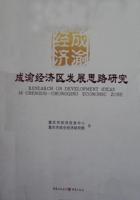Moreover, monks had long been insubordinate; they obeyed no head, except nominally; they were with difficulty ruled in their communities. Therefore obedience was made a cardinal virtue, as essential to the very existence of monastic institutions. I need not here allude to the perversion of this rule,--how it degenerated into a fearful despotism, and was made use of by ambitious popes, and finally by the generals of the Mendicant Friars and the Jesuits. All the rules of Basil were perverted from their original intention; but in his day they were called for.
About a century later the monastic system went through another change or development, when Benedict, a remarkable organizer, instituted on Monte Cassino, near Naples, his celebrated monastery (529 A. D.), which became the model of all the monasteries of the West. He reaffirmed the rules of Basil, but with greater strictness. He gave no new principles to monastic life; but he adapted it to the climate and institutions of the newly founded Gothic kingdoms of Europe. It became less Oriental; it was made more practical; it was invested with new dignity. The most visionary and fanatical of all the institutions of the East was made useful. The monks became industrious. Industry was recognized as a prime necessity even for men who had retired from the world. No longer were the labors of monks confined to the weaving of baskets, but they were extended to the comforts of ordinary life,--to the erection of stately buildings, to useful arts, the systematic cultivation of the land, to the accumulation of wealth,--not for individuals, but for their monasteries.
Monastic life became less dreamy, less visionary, but more useful, recognizing the bodily necessities of men. The religious duties of monks were still dreary, monotonous, and gloomy,--long and protracted singing in the choir, incessant vigils, an unnatural silence at the table, solitary walks in the cloister, the absence of social pleasures, confinement to the precincts of their convents; but their convents became bee-hives of industry, and their lands were highly cultivated. The monks were hospitable;they entertained strangers, and gave a shelter to the persecuted and miserable. Their monasteries became sacred retreats, which were respected by those rude warriors who crushed beneath their feet the glories of ancient civilization. Nor for several centuries did the monks in their sacred enclosures give especial scandal. Their lives were spent in labors of a useful kind, alternated and relieved by devotional duties.
Hence they secured the respect and favor of princes and good men, who gave them lands and rich presents of gold and silver vessels.
Their convents were unmolested and richly endowed, and these became enormously multiplied in every European country. Gradually they became so rich as to absorb the wealth of nations. Their abbots became great personages, being chosen from the ranks of princes and barons. The original poverty and social insignificance of monachism passed away, and the institution became the most powerful organization in Europe. It then aspired to political influence, and the lord abbots became the peers of princes and the ministers of kings. Their abbey churches, especially, became the wonder and the admiration of the age, both for size and magnificence. The abbey church of Cluny, in Burgundy, was five hundred and thirty feet long, and had stalls for two hundred monks. It had the appointment of one hundred and fifty parish priests. The church of Saint Albans, in England, is said to have been six hundred feet long; and that of Glastonbury, the oldest in England, five hundred and thirty. Peterborough's was over five hundred. The kings of England, both Saxon and Norman, were especial patrons of these religious houses. King Edgar founded forty-seven monasteries and richly endowed them; Henry I. founded one hundred and fifty; and Henry II. as many more. At one time there were seven hundred Benedictine abbeys in England, some of which were enormously rich,--like those of Westminster, St. Albans, Glastonbury, and Bury St.
Edmunds,--and their abbots were men of the highest social and political distinction. They sat in Parliament as peers of the realm; they coined money, like feudal barons; they lived in great state and dignity. The abbot of Monte Cassino was duke and prince, and chancellor of the kingdom of the Two Sicilies. This celebrated convent had the patronage of four bishoprics, sixteen hundred and sixty-two churches, and possessed or controlled two hundred and fifty castles, four hundred and forty towns, and three hundred and thirty-six manors. Its revenues exceeded five hundred thousand ducats, so that the lord-abbot was the peer of the greatest secular princes. He was more powerful and wealthy, probably, than any archbishop in Europe. One of the abbots of St. Gall entered Strasburg with one thousand horsemen in his train. Whiting, of Glastonbury, entertained five hundred people of fashion at one time, and had three hundred domestic servants. "My vow of poverty," said another of these lordly abbots,--who generally rode on mules with gilded bridles and with hawks on their wrists,--"has given me ten thousand crowns a year; and my vow of obedience has raised me to the rank of a sovereign prince."Among the privileges of these abbots was exemption from taxes and tolls; they were judges in the courts; they had the execution of all rents, and the supreme control of the income of the abbey lands. The revenues of Westminster and Glastonbury were equal to half a million of dollars a year in our money, considering the relative value of gold and silver. Glastonbury owned about one thousand oxen, two hundred and fifty cows, and six thousand sheep.















